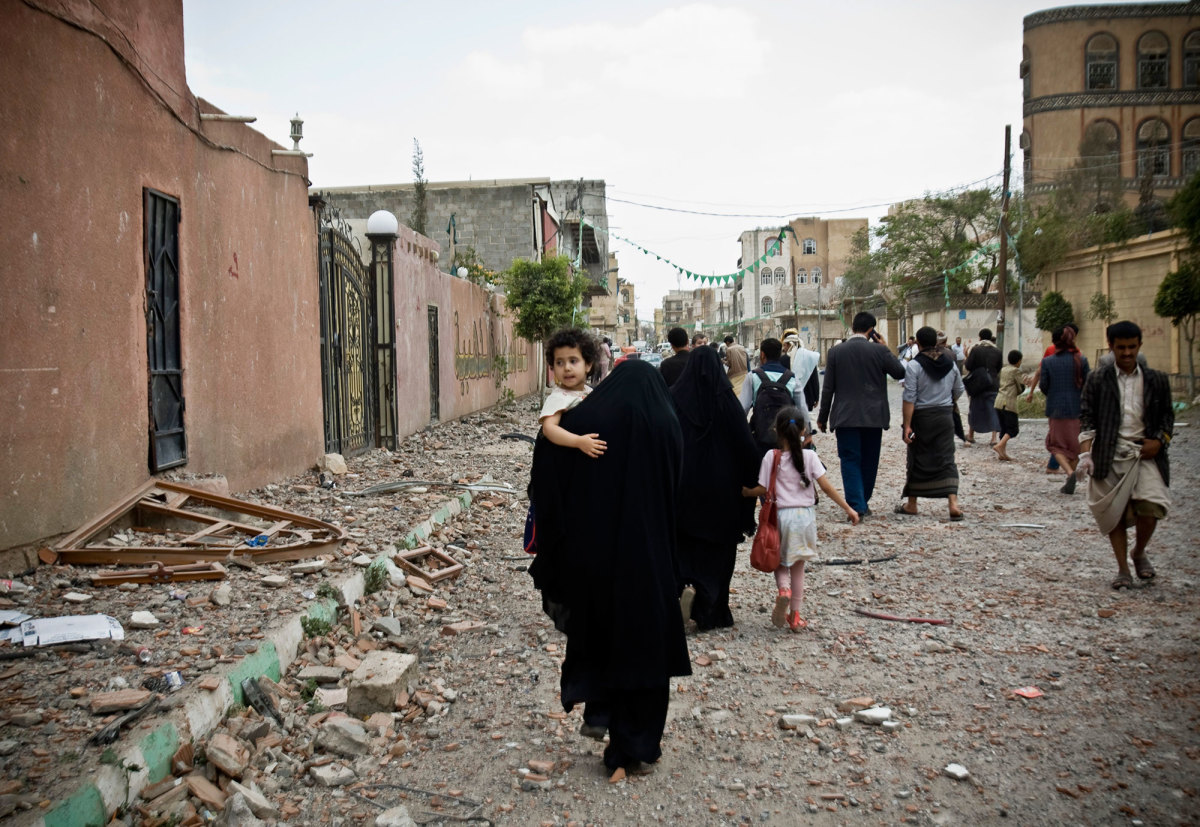AhlulBayt News Agency - Approaching to the deadline of second round of peace talks between Ansarullah and the resigned government of Mansur Hadi on behalf of Riyadh, which seems fruitless, an unexpected and substantial political settlement was signed. The settlement which was between Ansarullah and General People’s Congress under the presidency of Ali Abdullah Saleh will make the future of Yemen.
According to the settlement that was signed on July 28, it was decided, based on constitution, to form a presidency council for governing the country and 10 seats shared equally between sides as well as a rotating presidency. This political council carries responsibility of determining the policies of the Yemeni government to run the country and dealing with domestic challenges and foreign influx. According to this settlement, the government presidency is supposed to be rotated between Ansarullah and General People’s Congress.
After signing the agreement, "Mohammad Ali al-Houthi," the head of the Supreme Committee of Yemen stated that this settlement belongs to all Yemenis , and even the party of "Al-Islah" that during the invasion of Saudis acted against Yemeni revolutionaries can participate.
The agreement was signed with the support of various groups in Yemen, To the extent that it constitutes a major victory for the Yemeni people to determine the future political direction of Yemen. During the last days a large crowd of people have celebrated it by gathering in the city of Sana’a.
Many analysts and prominent Yemeni figures believe this political deal has consequences that affect the political landscape in Yemen, and in the long term can be considered a democratic experience in Yemen for the establishment of political structures in the post-war era.
In any event, the signing of this agreement, while the long and exhausting negotiations in Kuwait continued, not only is a testament to the results of these negotiations, but also works as a force of strengthening and unifying the domestic front in Yemen, especially in the northern regions of the country to prepare for a long war of attrition against Saudi Arabia and its allies.
The deal also could mean that coalition led by Saudi Arabia in Yemen is now at the peak of its weakness, So that the war of attrition in Yemen, has put Saudi authorities in a major deadlock, and leaving it will not be simple. Especially while the Yemeni movements have been united against Saudi invasion due to the abovementioned settlement. This could cause in more political coordination between the different Yemeni movements and as a result cause even more problems and challenges for the Saudi Arabia.
Therefore, it is safe to say that this settlement is a strategic settlement which will greatly stabilize the current situation, and is the most important factor in dealing with a common enemy. In addition, this could prepare the necessary conditions for intensifying the presidency council’s actions against Saudi Arabia and also provide the necessary situation for seeking compensation.
In this state, which could be considered an irrecoverable strategic defeat for the Saudis, an increase in aerial bombardment and attempts in taking control of Sana’a and finishing off the military situation in Taiz, Marib and other cities by Saudis would not be unexpected. Still, the possibility of other actions, including attempts to cause sedition among Yemenis, or even the return to the negotiating table in order to create new incentives to end the war peacefully, should not be ignored.
However, no matter how the Saudi Arabia reacts to this situation, the Sana’a settlement will be a turning point in terms of determining the future and the direction that the political scheme of Yemen will take. And in a way this settlement could cause the unity of Yemenis against the foreign aggression and invasion led by Saudi Arabia, and open up the way to form a consensus and legitimate government, at the end this could be a great political experience for Ansar Allah in running this country during crisis. Without any doubt, this settlement will change the regional and international views on Yemen’s political scene, and from now on they will witness a unified Yemen, that with more authority, will continue to advance in its political objectives.
/298

